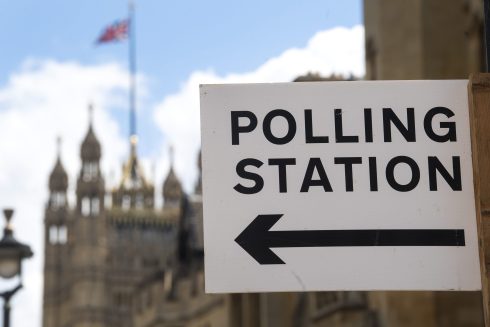FOLLOWING the removal of the arbitrary 15-year limit, British citizens living abroad are now eligible to vote in UK general elections and referendums regardless of how long they’ve been living overseas.
The implementation of the Elections Act 2022 has, from Tuesday, January 16, restored the voting rights of over three million Brits who live outside of the UK.
The move represents the biggest increase in the British electoral franchise since the introduction of full female suffrage in 1928.
Now, the UK’s Electoral Commission, the British Embassy in Madrid and various campaign groups are calling on British expats to check if they are eligible.
Hugh Elliott, British ambassador to Spain, said: ‘This law means that more British citizens living in Spain will now be eligible to vote in UK Parliamentary elections, which is good news’.

He added: ‘We’re asking the British community here to help us spread the word, because it’s important that eligible people are made aware of the changes so that they can register and cast a ballot when the time comes’.
Sue Wilson MBE, chair of the Bremain in Spain group which has campaigned for the reinstatement of voting rights, told the Olive Press: ‘Now the task of ensuring that Brits abroad understand the registration process and get themselves on the electoral register begins’.
The change in law comes into force as a general election looms on the British political horizon, with Rishi Sunak, the UK Prime Minister, expected to head to the polls in 2024.
British citizens, eligible Irish citizens and citizens of Crown Dependencies can now register to vote as long as they were either previously registered to vote in the UK or were previously resident in the UK.
Before beginning the process of registration, prospective voters will require proof of ID and a former UK address.
In order to prove your ID, you will require a National Insurance number and a date of birth. If you have a British passport, this will need to be scanned.
In order to prove your address, you will need to provide documentation containing your full name and address details.
Acceptable documentation for this includes: a UK driving licence (current or expired); council tax statement; credit card statement; utility or mobile phone bill; letter from an insurance company; correspondence from HMRC or the Department for Work and Pensions; P45, P60 form or a payslip; bank / building society passbook or a local authority rent book.

If you are unable to provide satisfactory evidence of your ID and former UK address, there will be the option of providing an attestation – you will need to ask someone (not a relative), who is over 18 and registered to vote in the UK, to attest to the details you provide.
British citizens living overseas can register to vote on the government website: https://www.gov.uk/register-to-vote.
When applying to the electoral register, expats should use the last address where they were registered as a UK resident. If previously registered to vote at more than one UK address, use the most recent address at which you were registered,
Any eligible voters previously resided in the UK, even as children, but who have never been registered to vote, can apply by using their last UK address.
Once submitted, details will be verified by local authorities responsible for the electoral role in their area.
Once registered to vote, British expats will need to renew their registration every three years, before November 1.
Anyone on a UK electoral register is also considered a permissible donor to UK political parties and campaigners.
British citizens living abroad who are registered on the electoral register are also eligible to apply for an absent vote online – this allows expats to vote either by post or proxy in forthcoming UK general elections, by-elections, recall petitions and referendums.
READ MORE:
- EXPLAINER: What are the rules for expat Brits regarding voting in elections in Spain?
- British expats in Spain and across Europe welcome UK move to scrap 15-year voting rule
- Spain and UK sign landmark deal mutually protecting voting rights after Brexit
Click here to read more Spain News from The Olive Press.








